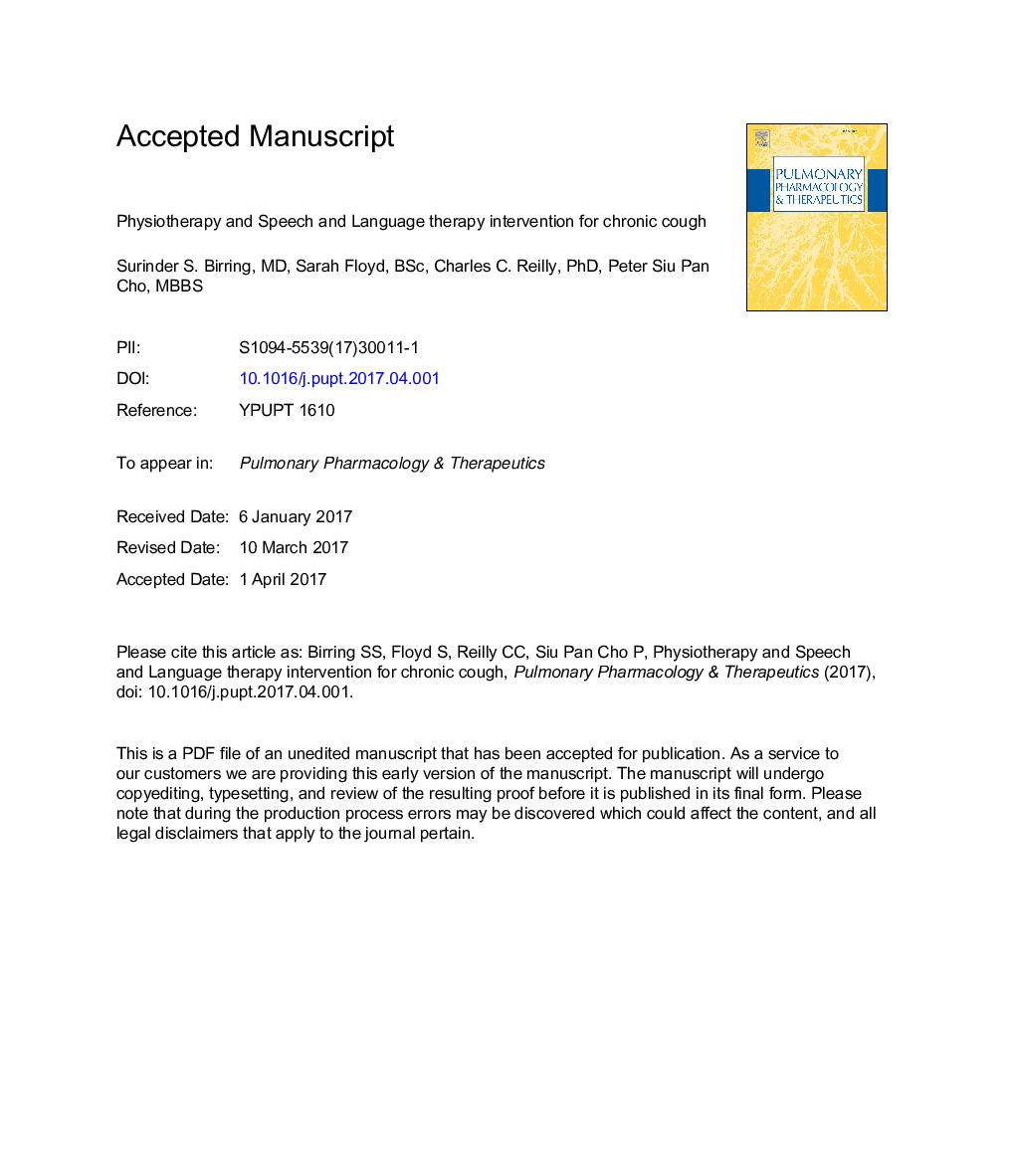| Article ID | Journal | Published Year | Pages | File Type |
|---|---|---|---|---|
| 8537921 | Pulmonary Pharmacology & Therapeutics | 2017 | 16 Pages |
Abstract
There are few effective pharmacological therapies available to treat refractory chronic cough. Functional MRI studies of the brain have recently shown that patients with chronic cough have dysfunctional inhibitory control of cough. Self-management therapies delivered by physiotherapists or speech therapists are effective at suppressing cough. They enable patients to consciously suppress the urge to cough. The intervention consists of education, laryngeal hygiene, cough suppression and distraction measures and behaviour modification. The efficacy of Physiotherapy and Speech And Language Intervention (PSALTI) has been confirmed in two randomised control trials. In one trial, there was a 41% reduction in cough frequency with PSALTI, assessed objectively with the Leicester Cough Monitor, and a clinically significant improvement in quality of life. Importantly, the improvement in cough was sustained when therapy was discontinued. The addition of the Speech Pathology Treatment to neuromodulator drug therapy, Pregabalin has also been evaluated in a clinical trial. There was a clinically significant improvement in quality of life, and this was sustained when therapy was discontinued. The mechanism of action of PSALTI is not known and this should be investigated in future. Further studies are needed to identify the components of PSALTI that deliver the most benefit, and determine whether PSALTI is effective in cough associated with other chronic lung disorders.
Related Topics
Health Sciences
Medicine and Dentistry
Pulmonary and Respiratory Medicine
Authors
Surinder S. MD, Sarah BSc, Charles C. PhD, Peter Siu Pan MBBS,
